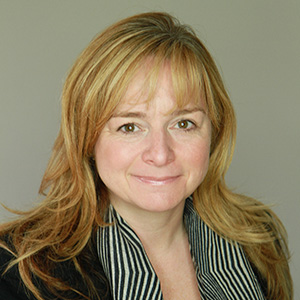Interview with Head of Ukrainian public broadcaster Mykola Chernotytskyi
09 March 2022
Mykola Chernotytskyi was appointed Head of the Managing Board of our Ukrainian Member UA:PBC less than 12 months ago. He is leading a team of 4,500 employees as they work to keep the Ukrainian population abreast of the latest developments in the Russian invasion. On Sunday (6 March), he spoke to Radka Betcheva, our Head of Member Relations CEE, about how UA:PBC were continuing to broadcast despite the challenges and risks and what it meant to be part of the bigger family of public service broadcasters.
Q: How are you managing to keep the Ukrainian population informed about developments in this war?
A: We are now working as part of a big media group. We work together with One Plus One, Inter, Ukraine, ICTV and the state company Rada to produce Marathon UA_Razom (Together). Every broadcaster produces five hours of content every day and it is broadcast one by one. We are all united on one big channel. We have united to be strong.
On the main channels (UA PERSHY, UA KULTURA) we have equal broadcast time with the others but, on our regional channels, we produce and broadcast more than five hours of content.
Over the last week, we have been in a news regime and we have been broadcasting only news. It is also about the safety of the people. We provide instructions for survival. We explain to people what they should do if their homes are bombed, and we inform people about their personal safety.
Q: UA:PBC has 27 regional channels, 36 websites, 100 social media pages. How are you continuing to run UA-PBC at this point?
A: The regional channels have unified now in one. It is the same for radio.
We have also strengthened our Telegram channel. Telegram is a messenger-like platform. It is very popular in Ukraine. Our Telegram channel is getting really very strong. Before the war, we had 12,000 subscribers. Today we have 230,000 people. It offers very succinct and short information and is very useful. You can read very quickly what happens. Our digital team can also obviously work out of the office.
There are two young people who work for digital. They remain in Kyiv and manage the Telegram channel and other digital issues from there. Some parts of the team work in other cities. If we have internet, we do not have a problem. However, the safety of our people is our major concern. The two young people in Kyiv, for instance, do not want to be evacuated and they say that they will continue to work in Kyiv.
Q: How are your staff managing to live and work in Kyiv and in the other regional centers?
A: We have 4,500 people working for UA:PBC. We try to connect with everyone and understand if they are safe. A lot of staff are working from home because it is way too dangerous for them to go to the office. Especially people who are in Kharkiv and Chernihiv.
The manager of our Kharkiv branch’s neighbour’s apartment was bombed. He and his family have survived, but this is what we are facing now. The people in Kharkiv have to constantly go to the bomb shelters. Some of them have organized WIFI and Internet so that they can still work in the shelters.
We have moved our HQ to the West of Ukraine, and we are living and working together in Lviv. We are regrouping all the time and it is a continuous process.
Q: How has UA:PBC managed to stay on air in these difficult circumstances?
A: Currently, we are broadcasting on satellite, digital and radio.
Three or four days ago, the Russians tried to jam our satellite and we had to use the reserve. In Kherson, the Russians attacked the TV tower and changed the digital multiplex channel to a Russian channel. The TV operator can’t control the whole tower. We can broadcast in some parts of the tower which are not occupied.
Last week, the Russians bombed the tower which is near our office in Kyiv, which caused a break in our programmes for two hours but, since then, the technical transmitting company have managed to restore our broadcasts.
The situation with radio is similar because we use the same towers for the radio signal. Yesterday, for example, the Russians broadcast on our frequency in Kherson. I highly appreciate it when colleagues from other countries take our radio signal and broadcast it in Romania and Poland and elsewhere. This is great and I would appreciate it if stations could broadcast in AM frequency which has very good penetration in Ukraine.
Q: How are you keeping the Ukrainian diaspora informed?
A: We have good relations with Poland’s TVP. They take our materials and re-broadcast them. They were the first to take our signal and broadcast it, followed by RTVSLO in Slovenia and LRT in Lithuania. TVP has also offered us one of their studios if we want to broadcast from there.
I hope that soon we will go back to Kyiv. We all want to come back to Kyiv and start broadcasting from Kyiv.
Q: What does it mean for you and your team to be part of the EBU and PSM community over the last days?
A: I highly value the support from the EBU. I appreciate the EBU’s decision about Russia’s nonparticipation in the Eurovision Song Contest, because this is a principle question for us.
I highly appreciate the support with technical equipment. And the concerts which the Members produce in support of Ukraine are a big support for us.
I am grateful for the support because we feel part of a community. I am happy that UA:PBC is part of the big and strong family of public service media.
Relevant links and documents
Contact







